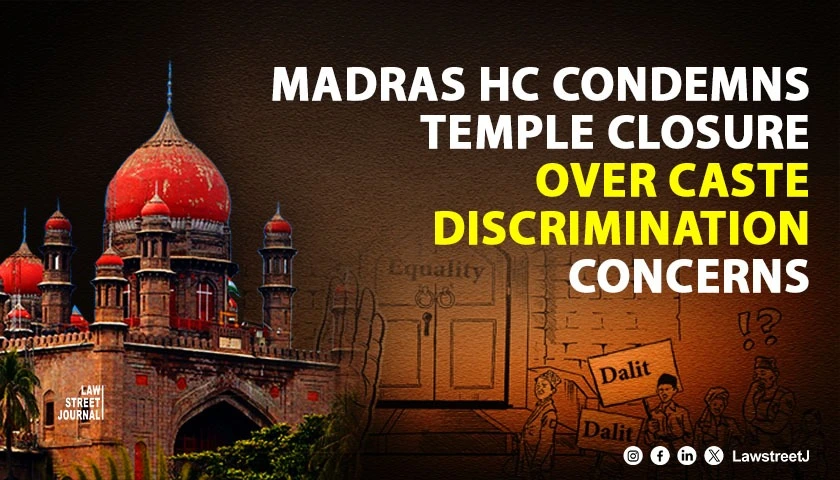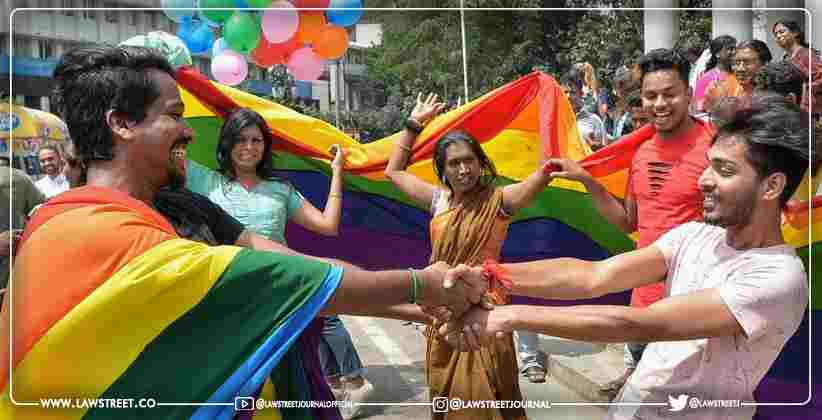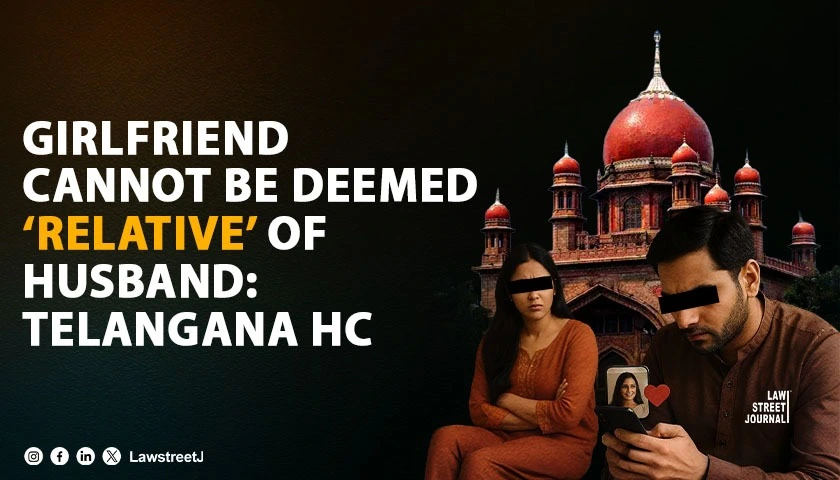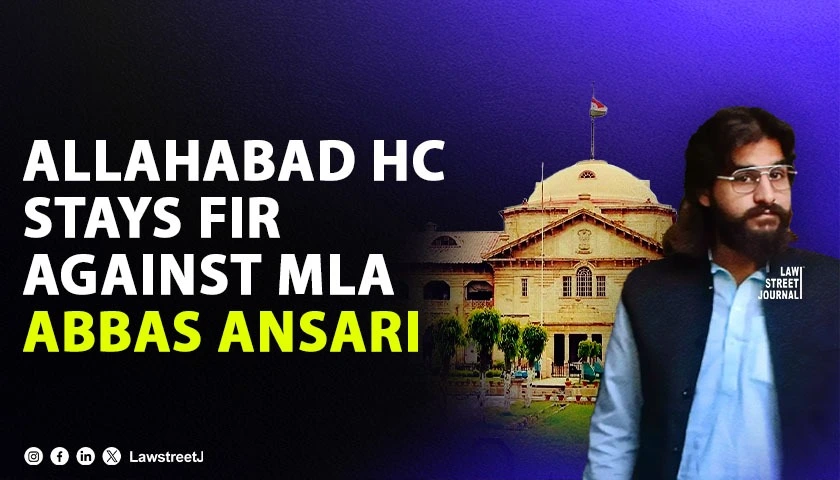Chennai: The Madras High Court has condemned the closure of the Arulmighu Mariamman Temple at Chinna Dharapuram in Karur District for seven years, criticizing the authorities for citing law and order concerns to deny constitutional rights.
Justice B. Pugalendhi, delivering the judgment on July 15, 2025, expressed strong disapproval of the District Collector’s approach to handling caste-based tensions at the temple, which has remained closed to all devotees since 2018.
The court addressed two writ petitions: WP(MD) No. 15950 of 2024, filed by Vanniyakulachathiriyar Nala Arakattalai, seeking permission to resume festivals and worship; and WP(MD) No. 17212 of 2025, filed by Marimuthu, alleging that Scheduled Caste devotees were being denied temple entry.
Addressing the administrative failure, the court observed, “The closure of a public temple, not for days or weeks but for years, under the guise of a law and order concern, is a dereliction of constitutional duty. The District Collector, as the top officer of the district, cannot escape his duty by simply saying there may be trouble.”
The court strongly criticized the police approach, stating, “Equally disturbing is the role of the District Police. They seem to think that the only way to keep peace is by denying entry to everyone. This is wrong. Stopping everyone from entering is not the way to maintain peace.”
In an observation on caste discrimination, the court noted, “It is shocking that even after 75 years of independence, people are still being kept out of temples because of their caste. The Constitution of India does not allow discrimination among devotees. God does not belong to any one caste. He does not discriminate. Only human beings do.”
The court also questioned why joint worship under official supervision was not considered, stating, “If the Trust really believes that there is no discrimination, then why should anyone be stopped from entering the temple? The easiest way to prove their claim would have been to allow joint worship under the supervision of officials.”
Citing a positive example, the court referenced the Kandadevi Temple festival in Sivagangai District, which was successfully conducted in June 2024 after being stopped for 17 years due to caste tensions. The court observed, “That success was not because they avoided conflict, but because they showed firm leadership and commitment to the Constitution.”
The court directed the HR&CE Department to file a detailed report within two weeks regarding temple management, community access, and the status of the draft scheme under Section 64. The District Collector was ordered to explain the prolonged closure and propose steps to restore worship on the basis of equality.
In a stern warning, the court declared, “This Court makes it clear that no person or group can block access to a public temple based on caste. If anyone tries to create trouble or claim superiority based on caste, they will face strict legal consequences.”
The court emphasized that peace achieved by denying rights is not genuine peace, stating, “The Government must remember that peace built by denying rights is not real peace; it is surrender.”
Case Title: Vanniyakulachathiriyar Nala Arakattalai vs. The District Collector & Ors.








![TN Medical Council declares change of gender identity of LGBTQIA+ as misconduct [Read Notification]](/secure/uploads/2022/12/lj_5268_5cebb05a-97fb-40fb-8045-25cdf8f4207a.jpg)
![Madras High Court Directs Tamil Nadu Government to Ensure Quota for Transgenders in Local Body Elections [Read Order]](/secure/uploads/2023/08/lj_2507_7a03d113-08b1-4670-b6fb-9058aee481d0.jpg)
![Anti Corruption sleuths acted like "puppets in The Muppet Show", HC notice to ex TN CM in disproportionate assets case [Read Order]](/secure/uploads/2023/09/lj_8675_7b37fc02-1b2d-4f4a-9816-3df20545b37e.jpg)






